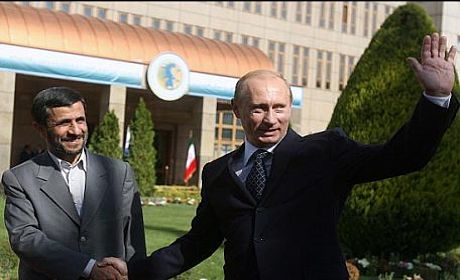We Didn’t Play Well with Moscow

Iranian Diplomacy: When was the S300 contract between Russia and Iran signed, and is it now an issue of difference between these two countries?
Mahmood Shoori: The issue of Iran purchasing the S300 defense system has been discussed since the early 1980s and it led to the signing of a contract between Russia and Iran. The Russians were supposed to deliver this system to Iran but it was postponed for two years. It was after the adoption of the UN Security Council resolution against Iran that Medvedev, the Russian President, announced that the delivery of the S300 defense system was included in the sanctions and that Russia could not make delivery. At that time, the issue of whether these defense systems could be included within the framework of the sanctions or whether the Russians were simply not willing to deliver them was discussed.
During that period, Medvedev was the president of Russia and in order to have more cooperation with the US, he sought to include this system in the UN sanctions and essentially refused to deliver it to Iran. But the Russians themselves claimed that they were committed with regard to the Security Council, and considering the fact that the Russians had cast a positive vote for this resolution, they needed to act upon their commitment.
It seems that the Russians could have acted differently at that time, but this action caused Iran, which had paid for this system, to protest and announce that it demanded Russia to compensate it. It was proposed at that time that the issue should be discussed in international tribunals, but the Russians disagreed and declared that, within the framework of relations between the two countries, there was no need for this issue to be directed to international organizations.
The issue that is discussed today by the Russians is that Iran's behavior is not right and if Iran decides to continue this issue in this form and trend, the Russians will reduce their support of Iran's nuclear program. This action is a kind of tit-for-tat and it seems that the Russians are taking advantage of this issue so that Iran will withdraw its complaint with Russia and forget about receiving compensation from that country.
ID: How serious is this threat from Moscow?
MS: If Iran intends to continue this trend and attain its rights from Russia within the international framework, bilateral relations will naturally be negatively affected and, in that case, Russia will not support Iran’s policies as before and it will not oppose the US’ unilateral policies.
Probably in the aftermath of the end of Russian support, in the final analysis, the situation will not be much different for Iran because the West has done anything it wants against Iran and Russia has created few obstacles on the way. It might be better to say that Russia has merely slowed down the West’s movement against Iran. However, there is a possibility that if the atmosphere of bilateral relations moves towards unfriendliness, it can increase pressures against Iran.
In my opinion, Iran could have followed this case within another framework and bearing in mind bilateral relations and the existence of dialogue between Iran and Russia, there was a possibility that both sides could have utilized this procedure and could not have allowed such an issue to reach the international arena, thus making the situation difficult for Iran. Therefore, bearing in mind that Iran does not have many friends at the international level, it should not unnecessarily destroy its relations with Russia. However, from the beginning, it was announced that Iran would register a complaint with international organizations and this matter angered the Russians.
ID: If Russia takes up this issue, how will Iran react?
MS: This is not an appropriate trend for relations between the two countries. It was probably better if Iran could have predicted the outcome so as not to reach this stage. At the moment, the situation is difficult for both Russia and Iran. In foreign affairs, Iran takes measures that limit its escape routes and those of the other side. Today, if Russia intends to compromise on this issue, it feels that Iran will be the winner and, on the other hand, if Iran wants to compromise, it will neglect its national interests. It seems at this juncture that dialogue is the best solution. Iran and Russia, who enjoy good relations, should solve this issue through dialogue once again and not allow it to be publicized, something which will cause the two countries to not be able to reach an agreement over it.

